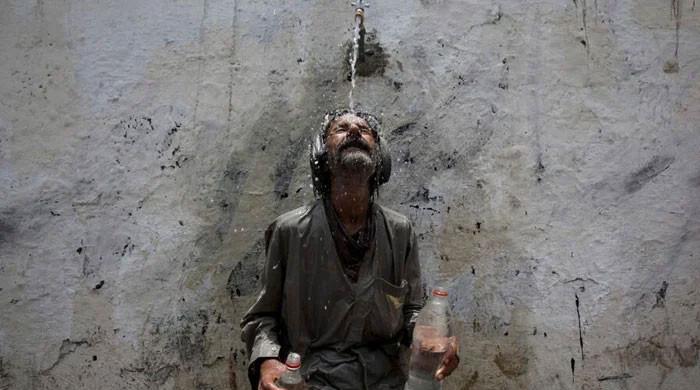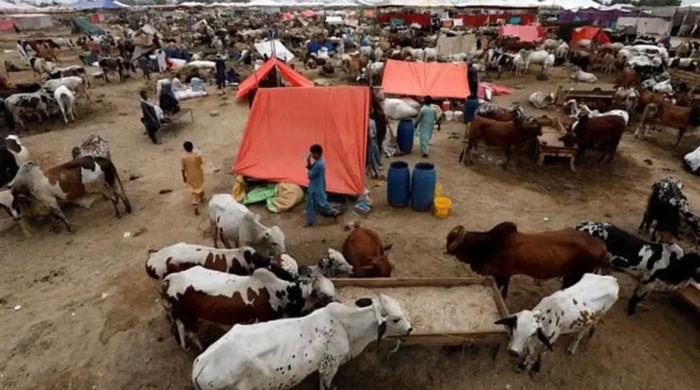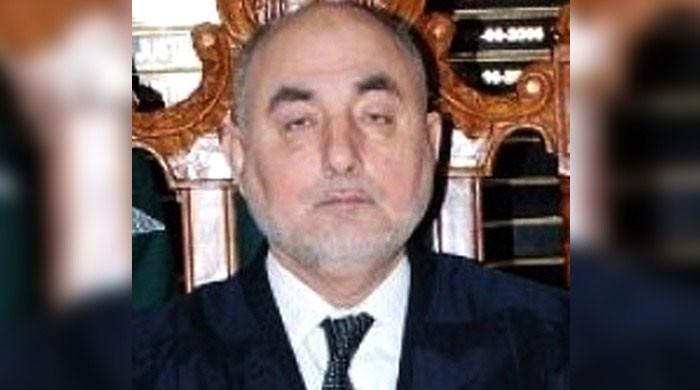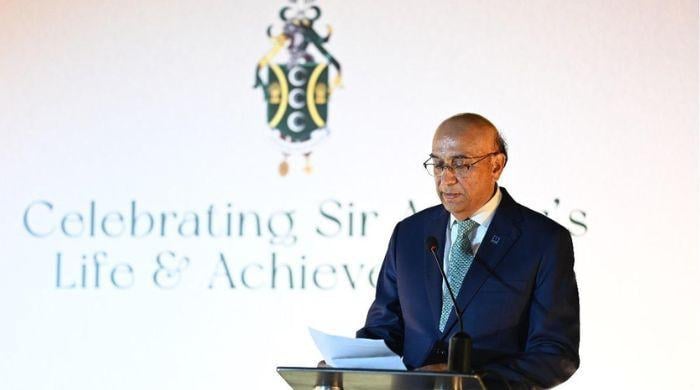Imran Khan admits he dissolved assemblies on Gen Bajwa’s advice
Former PM also says IB chief told him that Bajwa wanted to bring Shehbaz Sharif into power
April 24, 2023
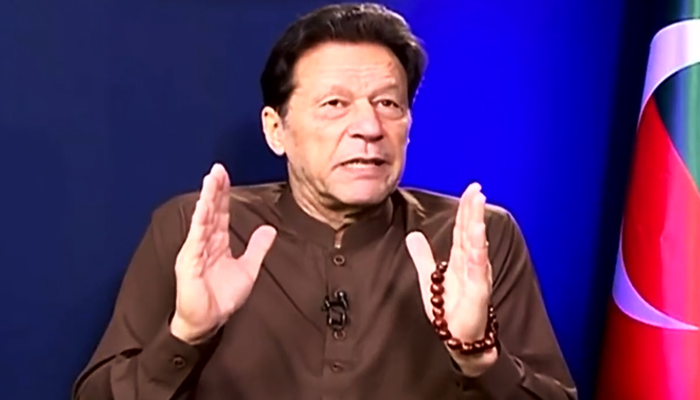
- "Former chief of army staff Gen Bajwa had no ideology," PTI chief says.
- "A leader from ME had told me that Bajwa was not with me any longer."
- Imran Khan says his party won't let govt go beyond May 14 for polls.
Pakistan Tehreek-e-Insaf (PTI) Chairman Imran Khan has admitted that he dissolved the provincial assemblies of Punjab and Khyber Pakhtunkhwa (KP) on advice from former army chief General (retd) Qamar Javed Bajwa.
"In a meeting with General Bajwa held in the presence of President Dr Arif Alvi, he [Gen Bajwa] said that if you want elections, dissolve your governments," the former prime minister said in an interview with a private news channel on Sunday.
Gen Bajwa had no ideology, he said, adding that the former chief of army staff (COAS) told him lies.
The deposed premier, who was voted out of office in April last year after a no-confidence motion, said that the Intelligence Bureau (IB) chief told him that Bajwa wanted to bring Shehbaz Sharif into power.
He also revealed that a leader from the Middle East had told him a year ago that Bajwa was not with him any longer.
"General Bajwa and the [premier intelligence] agency knew that the current rulers had stolen the money from the national kitty and taken it abroad. Despite knowing this, General Bajwa was willing to give them 'NRO' as he had planned an extension [for himself], Khan further said.
"If you have an ideology, you can't convince yourself to give NRO to these people," he added.
During the interview, Imran Khan also suggested polls to take place in July if Prime Minister Shehbaz Sharif dissolves the National Assembly — the lower house of parliament.
“Elections can be held in July if the prime minister dissolves the assembly,” the ousted premier said.
He also stressed that caretaker governments in both Punjab and Khyber Pakhtunkhwa (KP) — the provinces where Khan’s party was in power before he decided to dissolve its two assemblies on January 14 and 18, respectively — are illegal after the lapse of their stipulated term.
"The caretaker government's tenure is over already, it has become illegal,” the deposed premier said. He demanded the caretaker government be abolished and a new "neutral" interim setup be instated.
He added that the Supreme Court of Pakistan has given May 14 as the date for Punjab polls and his party won’t let the government go beyond that.
“If they think they [incumbent government] will pressurise the Supreme Court, we will not let it happen. They will scandalise the top court to run away from elections,” he said.
In response to the PTI's call for elections in the two provinces, the government has, time and again, insisted on conducting elections — to the national and provincial assemblies — together in October.
A three-member bench of the Supreme Court — headed by Chief Justice Umar Ata Bandial and comprising Justice Ijaz Ul Ahsan and Justice Munib Akhtar — had fixed May 14 as the new date for the election to the Punjab Assembly, as it quashed the Election Commission of Pakistan’s (ECP) decision to extend the polls date from April 10 to Oct 8.
While security has been cited as a major concern for the government to refuse holding the polls, the lack of funds for carrying out the task has also been communicated as the main reason for their insistence on delay.
The PTI chief shared the suggestion while refusing to back down from his demand for the snap polls. “There may be no money even in October. The situation may worsen. We cannot go beyond May 14.”
The former prime minister went on to say that inflation irked the public, and the government is running away from its reaction by postponing the elections.
“They are scared of elections,” he said censuring the Shehbaz-led administration.
Khan insisted that the ECP is working in connivance with the ruling Pakistan Democratic Movement (PDM) — an alliance of 13 political parties.
“Maryam Nawaz is receiving protocol. The election commission is with them,” he said, directing his criticism towards the electoral body and Pakistan Muslim League-Nawaz (PML-N) senior vice-president.
Commenting on the matter of talks with the ruling alliance in Islamabad, Khan said he had given the mandate of negotiations to his party’s Vice Chairman Shah Mahmood Qureshi and not to Asad Qaisar — the former speaker of the National Assembly.
“There has been no discussion on negotiations with Shah Mahmood Qureshi so far,” he clarified as there were reports that some major political parties had reached out to the PTI.
Earlier this week, the CJP Bandial said that the apex court could make some room and change the date of elections if all the political parties evolve a consensus to hold talks. The court had earlier also stressed on political parties to sit together to resolve the issues.
Pakistan Peoples Party (PPP) co-chairman Asif Ali Zardari, too, expressed his support for the proposal and called on his allies as well as all other political parties to come together and try to end the ongoing crises.
PPP senior leader Qamar Zaman Kaira also confirmed that the ruling alliance made a contact with the PTI. Jamaat-e-Islami (JI) Emir Siraj Ul Haq has also been actively trying to build a bridge between the PTI and the coalition parties in the government.
Khan, meanwhile, claimed that the government would use negotiations to further delay the polls.
He said that his long march took place because the government was not serious about talks with his party.
“I gave 20 days to start the long march. Are 20 days not enough for negotiations?” the former premier asked.





